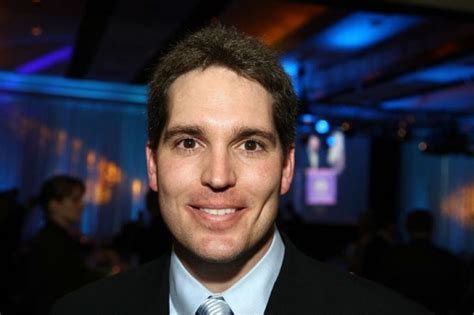A Quote by Mike McCue
If you're Burberry or Gucci, you're not going to run a banner ad. To get brand ad dollars to move to digital, you need to create a beautiful experience.
Related Quotes
The issues for journalism and journalists, we see obvious places where presentation is very different in a digital space from traditional print. If you go to a New York Times homepage, you cannot get to a story about the Ukraine without a click-off on a banner ad or a slide show. They're not alone in that - you think you're clicking on a video about a news event and you have a 30-second ad that you have to watch before you can get to it.
Imagine you're watching '30 Rock' and an ad comes on, but you don't like it. With Hulu Ad Swap, you can actually click the button and trade out the ad. So for the first time ever, a consumer is in control of their ad experience. For us, it's a big win because users are able to take control of what they see.
I'm not an ad-libber. If I'm asked to ad-lib, I can ad-lib forever and it's really fun to do that, but I find that well-written scripts are put together very carefully. Once you start to ad-lib and add words to sentences, there's a slacking that happens. When it's good writing, it's taut. I'm not judging people who do ad-lib.
A good ad is one simple idea, with humanity in it, that connects with consumers, that represents the value system of a company and then can connect it with the consumer. We always say a brand is set of shared values. So if you can simply demonstrate your value system as a brand, so that a consumer could say, "Ah, our values line up. I vote for you, brand!" that's a good ad.
You can't just repurpose old material created for one platform, throw it up on another one, and then be surprised when everyone yawns in your face. No one would ever think it was a good idea to use a print ad for a television commercial, or confuse a banner ad for a radio spot. Like their traditional media platform cousins, every social media platform has its own language.



































